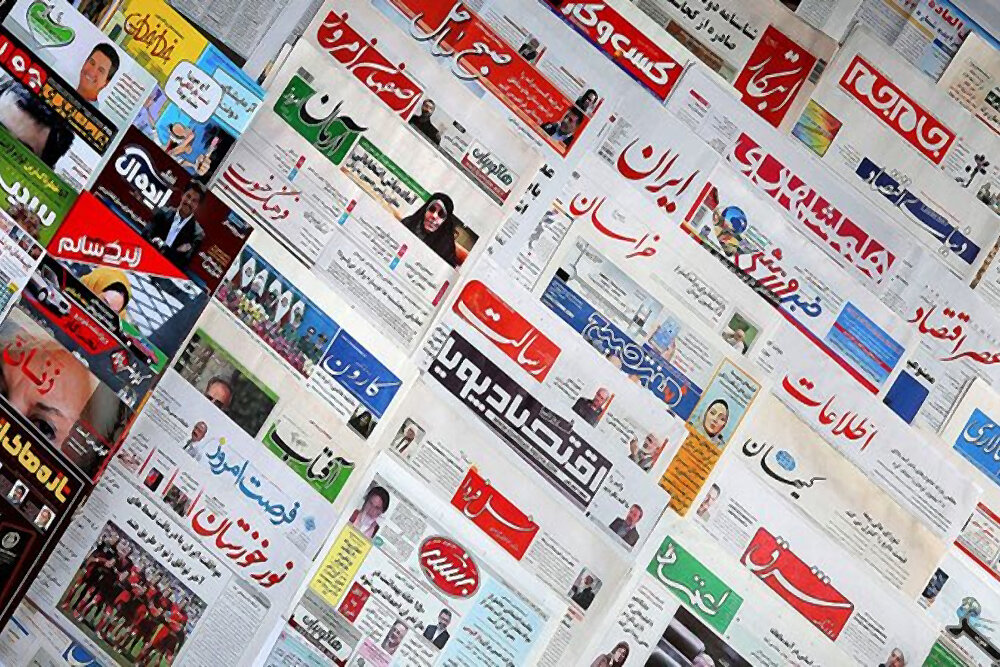Harmful cooperation with FATF

Iran’s inclusion in the FATF’s black list will not cause problems for our foreign trade and exchange rate stability, the Kayhan publication wrote.
One of the main doubts is non-cooperation of banks from Russia and China or other countries with Iran due to the FATF. The reason for making such comments is lack of sufficient mastery of the standards and documents of this international organization and the sanctions rules of the United States.
First, the FATF standards and its restrictions are not aimed at ending cooperation, but of increasing caution.
Secondly, the issue of non-cooperation of Chinese banks is not a new issue. After 2012 and the start of sanctions by the United States, this cooperation was stopped.
Thirdly, the cooperation of sanctioned Iran with the FATF not only will not lead to more cooperation, but on the contrary, it will lead to the termination of cooperation.
Farhikhtegan: Zionist regime’s role in Iran’s riots
Farhikhtegan analyzed the Zionist regime’s involvement in the riots in Iran.
We saw examples of this involvement in separatist groups’ attempts to smuggle weapons into the country and escalate tensions in western cities. These groups were also trained by Israel’s security agencies for a terrorist attack on Iran’s aircraft factory (HESA), and their action was thwarted in the days before the street protests began.
Israel does not have any new strategic plan against Iran and is trying to repeat the scenes of internal chaos in certain cities, particularly Tehran.
Jomhouri Eslami: One-dimensional foreign policy
Jomhouri Eslami, in its editorial, warned that what has happened in the close relations of the Islamic Republic with China and Russia over the last year has clearly shown that the one-dimensional policy of looking to the East is not in our interest at all.
Moreover, the one-dimensional policy of looking to the West is not beneficial either, it highlighted.
The officials in the Islamic Republic must fundamentally revise foreign policy according to the experiences gained over these years and, as stipulated in the Constitution, make the policy of interaction with the East and the West without accepting the domination of foreigners as a foreign policy principle.
Arman-e Melli: Iran’s future neglected
Seyyed Mustafa Hashemi Taba, a political activist and former vice president, told Arman-e Melli that If we do not think about the serious challenges that the country is facing and not taking urgent action, we will face problems in the future.
The important thing is the future of Iran, the environmental and agricultural situation and the future of people’s lives. Some say that the law should be changed for better management of the country. Sadly enough, no attention is paid to this important issue. Yet more attention is paid to political and economic issues.
Regarding the current situation, no political group can claim that it can solve all problems alone. Unity is created in the country when all political and social groups work together for a successful future.
In the first stage, the policies should be reformed and then the managers who are not competent should be replaced.
The current problems do not only depend on the policies of the current government; this government also inherited the wrong policies of the previous governments. If the policies are in line with development, people will be willing to participate.
Etemad: Lagging behind rapid global developments
Etemad in a note criticized lack of conceptual understanding of basic dialogue, and wrote that in most sensitive international issues that are directly related to national security, there is no consensus among the elites or a correct conceptual understanding.
It further referred to the reason behind this and said we have failed to learn how to discourse or understand the culture of basic dialogue.
Based on incorrect data, wrong analysis and wrong decisions are taken, and many times actions are taken completely against national interests, the author noted, citing some examples, like, how to interact with the Ukraine crisis and the Taliban in Afghanistan.
Therefore, in order to be able to stand stiff in this turbulent and stormy era of fast-paced developments, we must first reach an ‘elite analysis’ and draw a road map based on that, and with a clear task about how to interact with the world, and have an innovative, creative and active presence in foreign policy, the author suggested.
